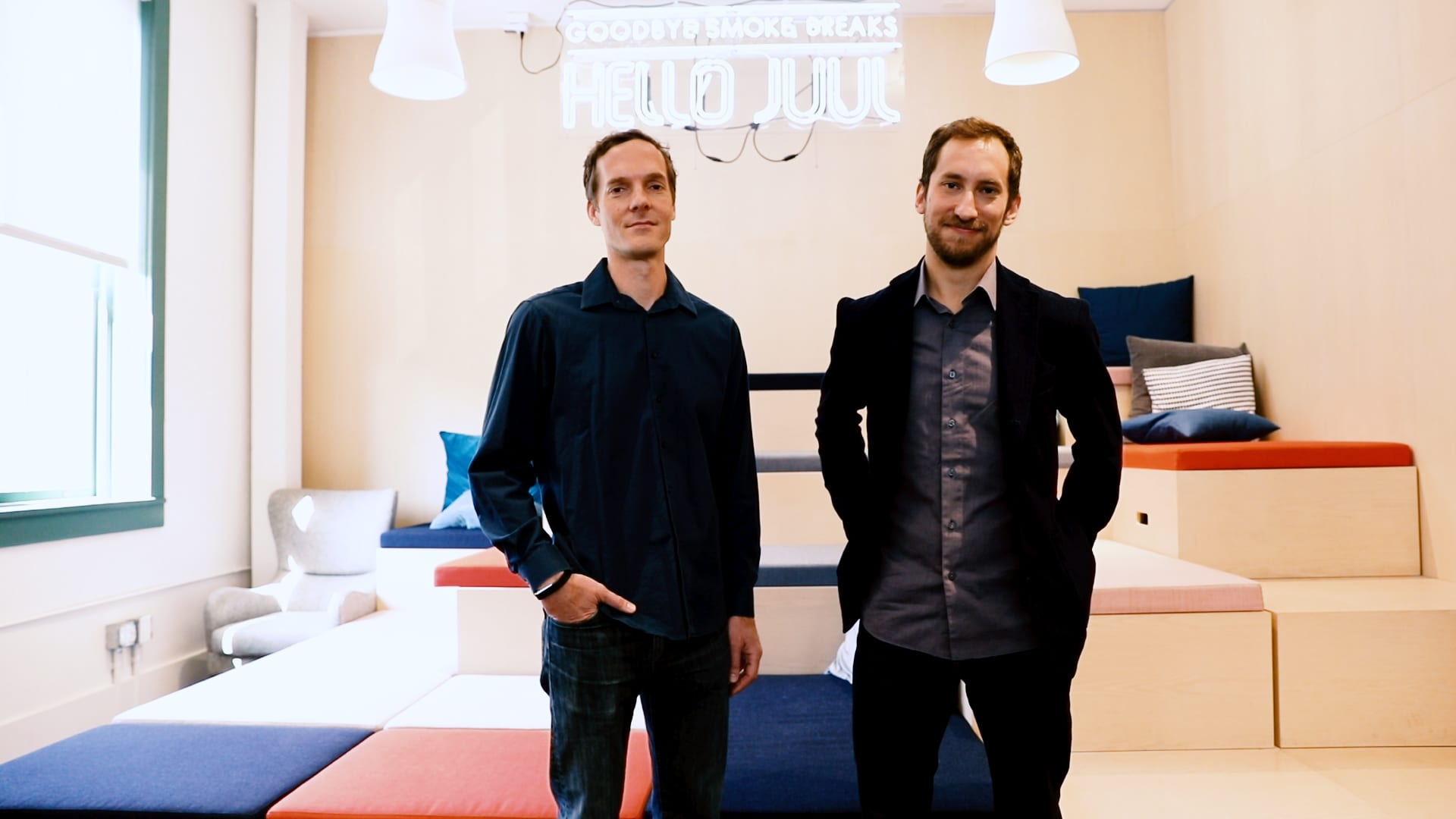
Juul co-founder James Monsees defended the e-cigarette start-up in a Congressional hearing Thursday, saying the company "never wanted" minors to use its products while admitting the company made "missteps."
The House Committee Oversight and Reform Economic and Consumer Policy subcommittee called in Monsees and Juul Chief Administrative Officer Ashley Gould to testify in a two-day hearing called "Examining Juul's Role in the Youth Nicotine Epidemic." Thursday marked the first time lawmakers publicly grilled Juul executives.
Monsees told lawmakers that Juul "never wanted any non-nicotine users, and certainly not anyone underage" to use its products. He acknowledged federal data shows millions of high school students started vaping as Juul's products became popular.
"We've certainly made missteps," Monsees said. "I understand the criticism of some of our past actions, but we moved on very quickly."
Juul says its e-cigarettes are meant for adult smokers, not minors and non-smokers. E-cigarettes are billed as a way to give people their nicotine fix without all the harm that comes with nicotine. Critics say they're merely a new way to hook a new generation to nicotine.
The divide was apparent on Thursday. Democrats ripped into the Juul executives, accusing the company of purposely luring teenagers to its e-cigarettes with fruity flavors and youthful advertising. Republicans appeared more sympathetic to Juul, reminding colleagues that millions of Americans still smoke and struggle to quit.
"I want to tell you, I've been involved in public health for a long time in the Bay Area," Rep. Mark DeSaulnier, D-Calif, told Monsees. "You sir, are an example to me of the worst of the Bay Area. You don't ask for permission, you ask for forgiveness. You're nothing but a marketer of a poison, and your target is young people."
Monsees tried to distance Juul from Big Tobacco, even though Juul sold a 35% stake of its company to Marlboro-cigarette maker Altria late last year.
"Put simply, Juul Labs isn't Big Tobacco," he said. "We are here to eliminate its product, the cigarette."
Rep. Debbie Wasserman Schultz, D-Fla., pressed Monsees on this relationship, asking whether Juul considered itself Big Tobacco because of it.
"I consider traditional big tobacco company as a major investor in our company," Monsees said, to which Schultz responded, "actions speak louder than words."
Committee chair Rep. Raja Krishnamoorthi, D-Ill., presented images comparing Marlboro cigarette branding with Juul's nicotine pod design. He pressed Monsees on a settlement Juul made with Philip Morris USA in 2015 over its design, saying Juul purposely replicated the popular Marlboro brand.
"I do deny that you're comparing here, with all due respect Mr. Chairman, you're comparing a piece of packaging to piece of product hardware," Monsees said in response to a question on whether he denies that Juul's initial pod design resembled Marlboro's design. "There was never any intent. The last thing we wanted was to be confused with any major tobacco company."
In the first day of hearings on Wednesday, two teenagers that a Juul representative gave an anti-vaping presentation at their school. Rep. Katie Hill, D-Calif., told Gould it disturbed her that Juul tried pushing anti-vaping curriculum. Gould said the company abandoned the effort once it learned that tobacco companies had made similar attempts.
Democrats criticized Juul's fruity flavors like mango and creme. Monsees defended the company's flavors, saying they help adult smokers stop smoking cigarettes. Juul pulled nearly all of its flavors out of retail last year facing pressure from the Food and Drug Administration.
Rep. Rashida Tlaib, D-Mich., said Juul changed its image only after the FDA called out its advertising. The company launched a campaign called "Make the Switch" in January featuring stories of adults who stopped smoking cigarettes thanks to Juul.
Tlaib accused Juul of skirting federal regulations barring companies from making smoking cessation claims without the FDA's approval, arguing that "switch" is merely a veiled word for "quit." She pressed Juul on its efforts to sell Juul e-cigarettes to employers and insurers, as CNBC reported in March.
"We do not claim for Juul to be a cessation product," Monsees said. "The history of cessation products have extremely low efficacy. That's the problem we're trying to solve here. If we can market to consumers an alternative and sell it right next to cigarettes, then we can actually make something work."
During the first day of hearings on Wednesday, anti-smoking advocates told lawmakers how Juul, maker of the market-leading e-cigarette, has become ubiquitous among teenagers. Stanford professor Robert Jackler displayed Juul advertisements featuring bright colors and attractive, young-looking models.
Last year, nearly 21% of U.S. high school students — roughly 3 million teens — vaped, according to federal survey data. Critics say Juul targeted minors and caused what regulators are calling a teen vaping "epidemic." Juul says its products are for adult smokers who want to stop smoking cigarettes, not kids.
Juul's CEO apologized in an interview with CNBC following a recent documentary, "Vaporized: America's E-cigarette Addition." CNBC's Carl Quintanilla asked Juul's Kevin Burns what he would say to a parent with a child who was addicted to Juul.
"First of all, I'd tell them that I'm sorry that their child's using the product," said Burns. "It's not intended for them. I hope there was nothing that we did that made it appealing to them. As a parent of a 16-year-old, I'm sorry for them, and I have empathy for them, in terms of what the challenges they're going through."

0 Comments